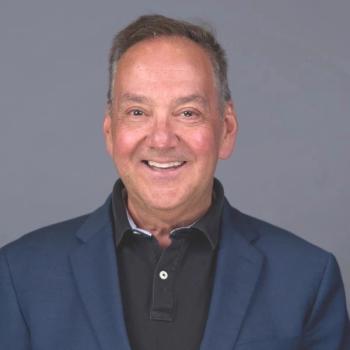
Anxiety and Uncertainty: Insights From an Oncologist
Uncertainty fuels anxiety, yet knowing outcomes—even grim ones—can bring relief.
COMMENTARY
“DrC” was a quirky but kind person. A math and science savant who treated cancer patients better than anyone I know, an impressive researcher whose publications won him prestigious academic appointments, and a serious science fiction fan to boot, my late colleague Dr C was often stumped by the nuances of human behavior. For instance, he could not understand why his homeowner’s association vetoed his proposal to build a moat around his recently purchased property. As his friend, it was my job to explain why his new neighbors were insulted by his wanting to keep them a moat’s length away, not to mention his willingness to use a medieval method to accomplish that unusual goal.
It should be no surprise that several of his medical school friends became psychiatrists, like me, who were happy to translate these details for him. But occasionally, he made stunningly astute observations about human psychology without any prompting at all. When that happened, we gave his unexpected insights extra weight.
Such was the case when he told me about the sky-high anxiety levels he observed in patients who were awaiting results of their biopsies, when they wondered if they did or did not have cancer, which stage it would be, and if effective treatment was available or not. As a cancer specialist who practiced at a specialized cancer clinic, he had many opportunities to make such observations. As a researcher, he was fully versed in crunching numbers and could extract informed inferences from whatever data was available. Should he be unsure of his conclusions, he was sure to say so—but that was not the case in this situation.
It came as no surprise that patients with suspected malignancies would be anxious, but it was surprising to hear Dr C say that these same individuals would calm down when the results came in, regardless of how bad they were. Even if they were told they had only a week left to live, he stressed, they became less anxious upon learning this information. They were then able to assess the data, make peace with the news, and plan for the future, regardless of how foreshortened that future might be. As per Dr C, the uncertainty of not knowing was worse than the certainty of knowing even the worst. Dr C’s bedside observations about uncertainty have been confirmed by social science studies. In short, uncertainty begets anxiety, and lots of it.
As for us, we are living in very uncertain times, when the news can change not just day-to-day, but often hour-to-hour. Some people do not know if they will have a job next week or next month or if their outlawed skills and experience will become obsolete. For many, it is unclear if they can stay in this country indefinitely or if they must leave tomorrow. No one knows if their sinking 401(k) will rise sufficiently before their retirement. Health care is equally tenuous in the current environment, given the proposed changes in eligibility criteria for Medicaid and the loss of insurance that typically comes with job loss, compounded by the decreasing likelihood of being packaged out of employment with the customary courtesy of prepaid (but time-limited) insurance benefits.
With the current economic upheavals we are experiencing, and with not knowing how long our shrinking savings will last, it is easy to feel like a pinball ricocheting across a machine, bouncing from side to side and from top to bottom, without any specific destination, while literally hitting the wall. Many feel like they have lost the ability to control their destinies and understandably fret about ways to survive the coming year. Sometimes, we are not sure if we can ride out the month, when the rent comes due.
Another strange thing about anxiety: anxiety is contagious, much like the common cold. If others around us are anxious, then we may get more anxious as well. Sometimes that anxiety boils over, propelling individuals who might not necessarily seek psychiatric treatment to turn to professional help to relieve this cycle of distress, not necessarily forever, but maybe just temporarily. Knowing that anxiety is a common reaction to uncertain times may perhaps provide some consolation to the many who are experiencing similar reactions. And perhaps the wisdom shared by the long-gone Dr C will relieve some of this distress.
Dr Packer is an assistant clinical professor of psychiatry and behavioral sciences at Icahn School of Medicine at Mount Sinai in New York, New York.
Newsletter
Receive trusted psychiatric news, expert analysis, and clinical insights — subscribe today to support your practice and your patients.







